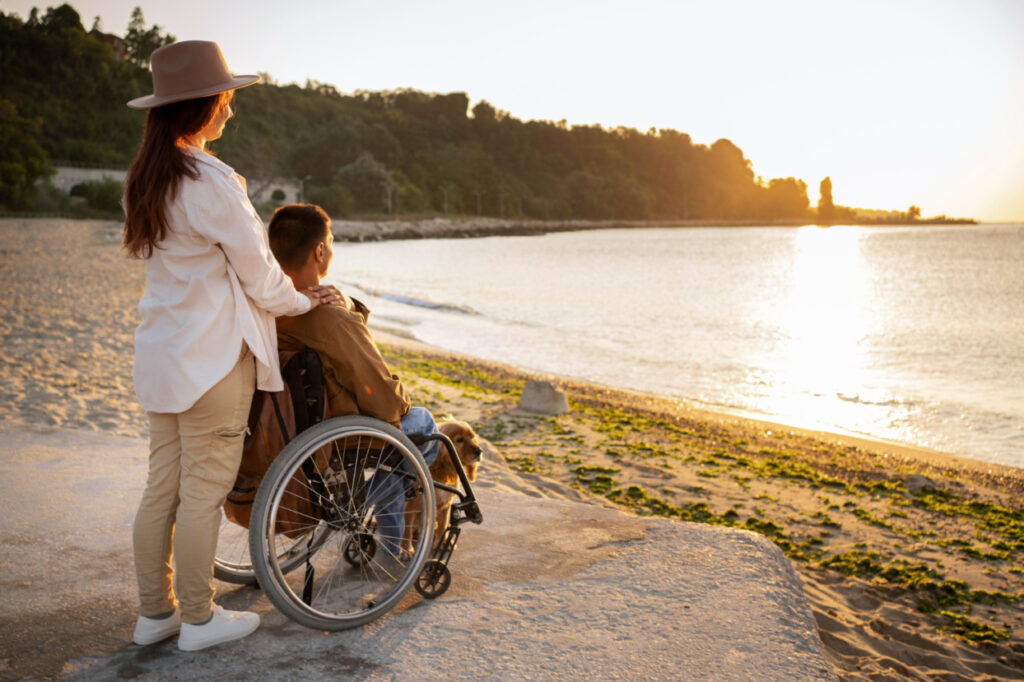Living independently for as long as possible is the goal for many Australians. However, some individuals, particularly the elderly and disabled, need extra support to meet their daily needs. In such a situation, Supported Independent Living (SIL) may be right for you.
SIL allows you to access support in an empowering and supportive environment without having to sacrifice your freedom. In this blog, we’ve summarised everything you need to know about SIL, including what it is, its benefits, how to choose the right SIL provider.
What is SIL?
Supported Independent Living involves helping with or supervising everyday tasks to enable you to live independently while still building their life skills. It’s designed for individuals with high support needs who require help to live safely and independently at home. SIL can be provided at home or within a shared group home. Often those who require SIL will also benefit from Specialist Disability Accomication or SDA which you can read about here.
Usually delivered by NDIS-registered providers, SIL services fall under three levels of support, including:
- Lower needs: Here, SIL services are not provided 24/7 and include regular living arrangements supervision.
- Standard needs: At this level, services are offered 24/7 and comprise supervision of most daily tasks and overnight support.
- Higher needs: It’s usually the highest SIL level. Under this category, you’ll receive 24/7 active support with night and day activities. For the most part, this level applies to people with high medical needs.
What are the benefits of SIL?
SIL is undoubtedly essential in boosting the quality of life for NDIS participants with high support needs as well as the elderly. In addition to growing their confidence, SIL promotes one’s social life and enhances their freedom and safety.
Here are five reasons why SIL is worthwhile:
- It promotes independence: SIL is designed to help you live independently and manage your life how you see fit. Although there is always a professional to offer support when needed, you have the freedom to decide when you receive the care.
- It makes it possible for individuals to control their decisions: Persons living with disabilities should have the same chance to make decisions and choices about their lives. SIL allows those with disabilities to make informed decisions for themselves and support them to recognise and manage the results of those choices.
- It promotes a healthier lifestyle: From maintaining your home to preparing healthy meals, SIL can help you lead a healthier lifestyle.
- Promotes social life: With SIL, you have the chance of living in a shared home environment where you can meet and interact with like-minded friends and individuals.
- Freedom and safety: Freedom and safety are two key components for an individual’s comfort. Whether you choose a shared-living community or opt for the drop-in SIL service, you can be sure that you’ll have the freedom you need. You’ll also receive 24-hour supervision to support you with your needs should you require.
Now that you know the benefits of Supported Independent Living, let’s find out how to choose the right SIL provider.
Must Haves for SIL Provider
The right SIL provider not only helps you with household chores and personal care but also provides emotional and social support. Given the wide range of options, you have at your disposal, choosing the right SIL provider isn’t always straightforward.
For your safety, independence, and mental wellbeing, the right SIL provider should have one or more of the following qualities and services.
– They must be NDIS-registered
– Good reputation, resource guides, and blogs. You can learn about the agency’s reputation through testimonials and online reviews.
– Experience – the provider must have the experience needed to care for a disabled or aging loved one.
– 24/7 customer service to answer any questions
– 5-star reviews. You can check online reviews for this.
– A big team to cater to your needs
– The right workers, including NDIS support workers, specialist nurses, allied health professionals to provide you with any therapies you need.
Additionally, the SIL provider should provide you with several SIL accommodation services, including:
- Help with personal care, medical needs, and household chores
- Clinical support, including the administration of medication or the management of specialised health conditions
- Social skill and capacity builders, as well as capacity workers
- Security and safety support
- Specialised Disability Accommodation (SDA)
Get in Touch With Us
SIL plays a crucial role in promoting independence and safety among the elderly or those living with a disability. Choosing the right provider isn’t always straightforward.
If you’re looking for an NDIS-registered SIL service provider with qualified care professionals, look no further than OSAN Ability. Our team of nurses, allied health professionals, and other specialist practitioners is always ready to support you with the care you need to live independently and comfortably.










